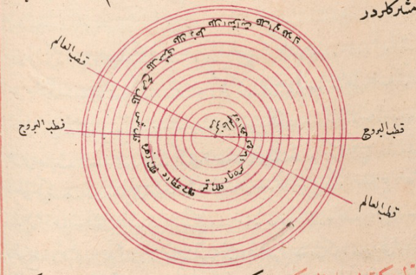
This is a work in progress. If you find any new or alternative readings or have any suggestions or comments please get in contact with us at:
.
You are using an outdated browser. Please upgrade your browser to improve your experience.
| أ | ā, a, e, ʾ |
| ب | b |
| پ | p |
| ت | t |
| ث | s̱, ṯ |
| ج | c, ǧ |
| چ | ç, č |
| ح | ḥ |
| خ | ḫ |
| د | d |
| ذ | ẕ, ḏ |
| ر | r |
| ز | z |
| ژ | j |
| س | s |
| ش | ş, š |
| ص | ṣ |
| ض | ż, ḍ |
| ط | ṭ |
| ظ | ẓ |
| ع | ʿ |
| غ | ġ |
| ف | f |
| ق | q, ḳ |
| ك | k, g, ñ |
| ل | l |
| م | m |
| ن | n |
| و | ū, u, ü, o, ō, ö, v, w |
| ﺅ | ʾ |
| ه | h, e/a |
| ى | ī, i, ı, ė, y |
| ﺉ | ʾ |
Depending on a text’s language, we used two different systems of transcription:
// new line in the original text.
[…] illegible words or passage.
(text) duplicated or redundant words or letters.
[?] doubtful readings.
[!] misspellings, especially concerning the orthography of Arabic and Persian words.
In order to facilitate readability, we did not indicate with [!] the hundreds of orthographic mistakes: e.g., ḥ instead ḫ (daḥı/daḫı), c instead ç (gėce/gėçe), and the like.
[‑]i the letter yā of the iżāfet-construction is written out, a misspelling which frequently occurs both in poems and prose.
ʾi/ʾı at the end of a word: accusative is indicated with a hamza.
m‑r‑ż‑y hyphenated single letters: a word was legible but not found in the dictionaries.
Capitalization:
Personal names, place names, months, book titles, and Allāh, are capitalized.
Hyphenation:
Hyphens have been used only in word combinations (as mey‑ḫāne) or words combined with Arabic or Persian prefixes or prepositions (as bi‑ʿaynihī or der‑ḥāl).
The postposition ile in its suffixed form is given with a hyphen only when written with a yā and explicitly included no possessive, hence murād‑ile, murādla, murādıyla.
Suffix vocalism:
Because we are dealing with texts of the 16th and 17th centuries, in the transcriptions we use the older Ottoman Turkish suffix vowels, such as the possessive suffix of the first person plural -umuz/-ümüz. If the copyist explicitly indicated different vocalization by plene-script or vocal signs, we transcribed accordingly.